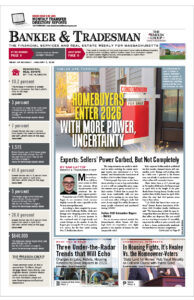Life science developer IQHQ Inc. has notified Brighton’s Sound Museum to vacate its longtime studios on Jan. 31, throwing into doubt the short-term rehearsal space options for hundreds of local musicians.
In November, IQHQ announced that it has identified two properties within walking distance of the 155 North Beacon St. property, with plans to acquire one and build out 20,000 square feet of “affordable musician studios.”
Kim Thai, IQHQ’s director of development, said during a presentation last month that the new facility would potentially be run by a nonprofit organization and the developer would donate the property to the city of Boston. Thai did not give a timetable for completion of the replacement location, and IQHQ declined further comment today.
“We recognize the cost of property in Allston-Brighton is only rising and it’s becoming more difficult for artists and musicians in this neighborhood to be able to continue their livelihood,” Thai said at a Boston Planning & Development Agency advisory group meeting last month.
IQHQ acquired the 155 North Beacon St. property in 2021 for $50 million and is seeking approval for a 409,000-square-foot life science complex.
Sound Museum owner William Desmond could not be reached for comment. For over 30 years, the studios located in a 140,000-square-foot commercial building have rented space to local bands, and currently advertises the city’s most affordable rehearsal space at $40 an hour.
The Arts Stays Here coalition has been advocating to protect arts and cultural organizations from displacement when properties are redeveloped as higher-income-generating uses.
Coalition organizer Ami Bennitt said it’s attempting to find short-term space to bridge the gap until the replacement location opens.
“We’re thrilled about the long-term win, but we’re equally concerned about the short term need for rehearsal space. There is none around,” Bennitt said in an email. “We had advocated for either a longer stay at the current location and/or swing space in between — but no luck so far.”
In January, Boston Chief of Arts and Culture Kara Elliott-Ortega asked the developer to include rehearsal space in the new development.
Boston doesn’t have any formal requirements to include arts and cultural spaces in new developments, but Mayor Michelle Wu endorsed new zoning requirements for studios, rehearsal and performance spaces, plus live-work artist housing in her platform.
In a statement, Elliot-Ortega said the city is committed to “no net loss” of creative and cultural space in Allston-Brighton.
“We recognize that this is not a short-term solution, and the current tenants are still in immediate need of space. We know this outcome will affect a large community and impact working musicians in our city, where lack of available space has already been a critical issue,” Elliot-Ortega said.
In 2019, Somerville began requiring major developments to include up to 10 percent of their square-footage for arts and creative enterprises.








